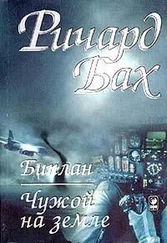At the airport in Montego Bay, Ratzi asked in a flat tone what airlines they were flying. Natasha got out first, and again Skinner nodded at her. She tried to smile but felt only a sense of having looked foolish. Ratzi hauled her bag out of the back of the van, set it down, and then shook hands — no grip, not even quite fully making contact. Then he got back in behind the wheel and pulled out and away with his cargo of unhappiness and recrimination: Mrs. Skinner glaring out the back side window.
There was a very long line leading to the check-in counter. It took an hour to get to where you checked your bags. Natasha checked hers, then made her way through the muddle and noise of others. A garbled voice announced a gate change for another flight. She heard a loud beeping from somewhere. Reaching the gate with nearly an hour to spare, she sat down to wait. The whiskey she had drunk was making the beginnings of a headache, so she went and ordered a Bloody Mary at one of the little kiosk bars. This is what I’ll do , she thought bitterly, swallowing the drink. I’ll just stay crocked all the time .
The airline had overbooked the plane, and the gate clerks kept asking for volunteers to take another flight. An apparently unmanageable number of people were waiting, the backup of four days without flights. It looked like the whole island wanted out. Through the tall windows opposite where she sat, you could see, beyond the tarmac and a span of grass and low-roofed buildings and skinny palms, Montego Bay.
She sat quite still, fighting sleep, with her purse and a newspaper in her lap. The newspaper was full of images of the destruction, but she could not concentrate on it. She saw the plane taxiing slowly into its place at the gate. It looked like the same kind of plane that had been flown into the towers. Near her, a heavy man — nearly Skinner’s size — was talking to a small woman, worrying aloud about fitting into a coach seat. “I usually always fly first class because of my girth,” he said. “Even though I’m not wealthy.”
“I’m sure it’ll be all right,” the woman muttered. Then: “Where are you seated?”
“Way back. Twenty-three A. The only one I could get. First class was completely booked before the shutdown.”
“Twenty-three A. Is that a window seat?”
Natasha tried to read. The flight had already been delayed an hour out of Dallas. There were so many other people trying to get somewhere, and for most of them, of course, somewhere was home. Home . She felt a blankness for an instant. What was home? Not a dwelling, not even the place of one’s blood relatives, finally. That was not home, not really; that was, in its way, without denying the love that might be there, where you belonged before you went out in the world. Just now, she felt nothing like the settled sense of one place where she belonged. Then she turned in herself and looked directly at what she did feel. Home was Michael Faulk. And she was home for him.
Now a sparse stream of people came from the gate and headed toward customs. They did not appear to be vacationers. Most of them looked Jamaican. It was not long before the last of them had exited. Natasha saw herself arriving fifteen days ago, remembering it like a brief waking dream, how happy she had been, anticipating a good time. Now it felt like remembering some sort of failure. Presently, a slender woman with dark green eyes and a tight blond bun tied at the top of her head took the little microphone from the console at the gate, called the number and destination of the flight, and said people could begin boarding. Natasha stood. Her back hurt. She could not imagine that the plane would fly safely to its destination: Miami. In line in front of her the large man stood, looking tired and worried. They were moving slowly, past the attendant and down a long corridor toward the jetway. As she got close to the entryway, she looked back into the busy high-ceilinged, white-lighted gate area with its blue seats and low tables, the crowd there. It looked like an exodus, people seeking refuge. Yet they seemed calm enough, preoccupied with their bags and their tickets. It was all completely ordinary looking. And then, as two elderly women moved to get into line and a small nattily dressed black man moved to stand where they had been, through the little open space created by their movements, she saw Nicholas Duego. He looked right at her with a surprised expression of intense concentration, a frown tinged with fright. Something dropped inside her. The bones of her legs felt as if they were turning to liquid, and she had to put her hand out to the wall. Evidently he had just seen her. But he did not look away.
She turned, hefted her purse, held it at her middle, feeling the shudder come, the trembling. There was no movement in the line. She thought she might be sick.
The big man in front of her coughed, then moved to the side a little and bent down to reach into his bag, apologizing. Whatever he was looking for was not there. He straightened and looked at her. “I’m sorry, would you happen to have any Kleenex?”
She opened her purse and found a little packet at the bottom. She handed it to him and watched him open it, and she saw the little spiral shapes of white, like facets in marbles, inside the buttons down the front of his shirt. There were two more buttons holding his collar down. She noted them and noted the same spiral shapes. Little details that were solid and dependable. She looked down the line toward the left turn into the jet and saw the others. The heavy man used three Kleenexes out of the packet and then tried to hand the packet back to her.
“You keep it,” she told him, or thought she told him. He stood there holding it out. Finally she pushed his hand away.
“Are you all right?” he said.
“Thank you,” she said, still not certain that the words had actually left her lips.
He pushed the packet into the top of her purse, smiled reassuringly, then went on. She followed in a kind of daze. She did not look back, and when she came to the doorway she put one hand out and held on to the steel frame of it. Waiting there was a square-faced, middle-aged blond woman, the flight attendant, who smiled and greeted her and then caught her as she tumbled forward. It was only a second, but in that second she had lost consciousness. The flight attendant’s grip was strong, and she held her.
“I’m okay,” Natasha said, low. “Please.”
“Looks like you went out for a second, honey. You all right?”
“Fine, yes.”
“Want help to your seat? I think we’ll help you to your seat.”
“I’m fine . No.” She moved into the cabin, past the people staring at her in first class, on down the narrow aisle, stopping to wait while others put bags in the overhead bin. Her own seat was 25C. An aisle seat. A young woman and a child were in the middle and window seats. The child, white as paste and too thin, was at the window. His mother was already reading a book. Natasha took the seat, and the woman turned to smile at her. Natasha saw her brown eyes and the little blemish on her right cheek.
“Hi. At last, we can fly out of here,” the woman said.
Natasha thought she nodded.
“Where’re you from?”
“Wa—,” she began. “I’m sorry. Memphis.”
The woman offered her hand. “Durham, North Carolina.”
Natasha took it, felt the warmth of it, the roughness of the underside of the fingers.
“I’m a sculptor. I work in wood.” It was as though this were an explanation.
Natasha nodded.
“You?”
“I used to work in D.C. Assistant to Senator Norland.”
“That must be wonderful. A senator’s assistant.”
“Well, I’ve quit that.” She was surprised that she could hear her own voice. She thought she might’ve smiled. It was difficult to tell because everything seemed to be taking place in a suspension — somehow the part of her that was watchful and aware was a half second behind everything. She felt light-headed and dizzy just as the woman leaned close and murmured, “Are you as scared as I am?”
Читать дальше












